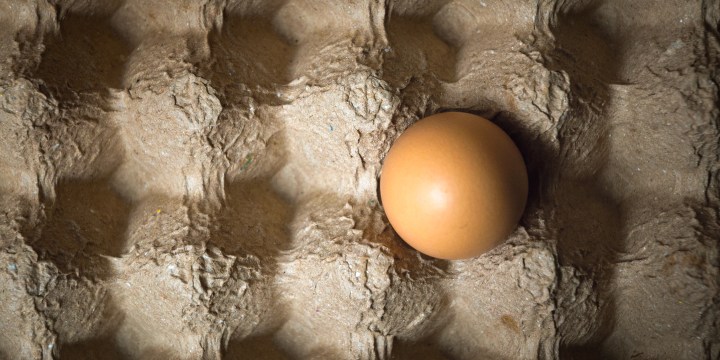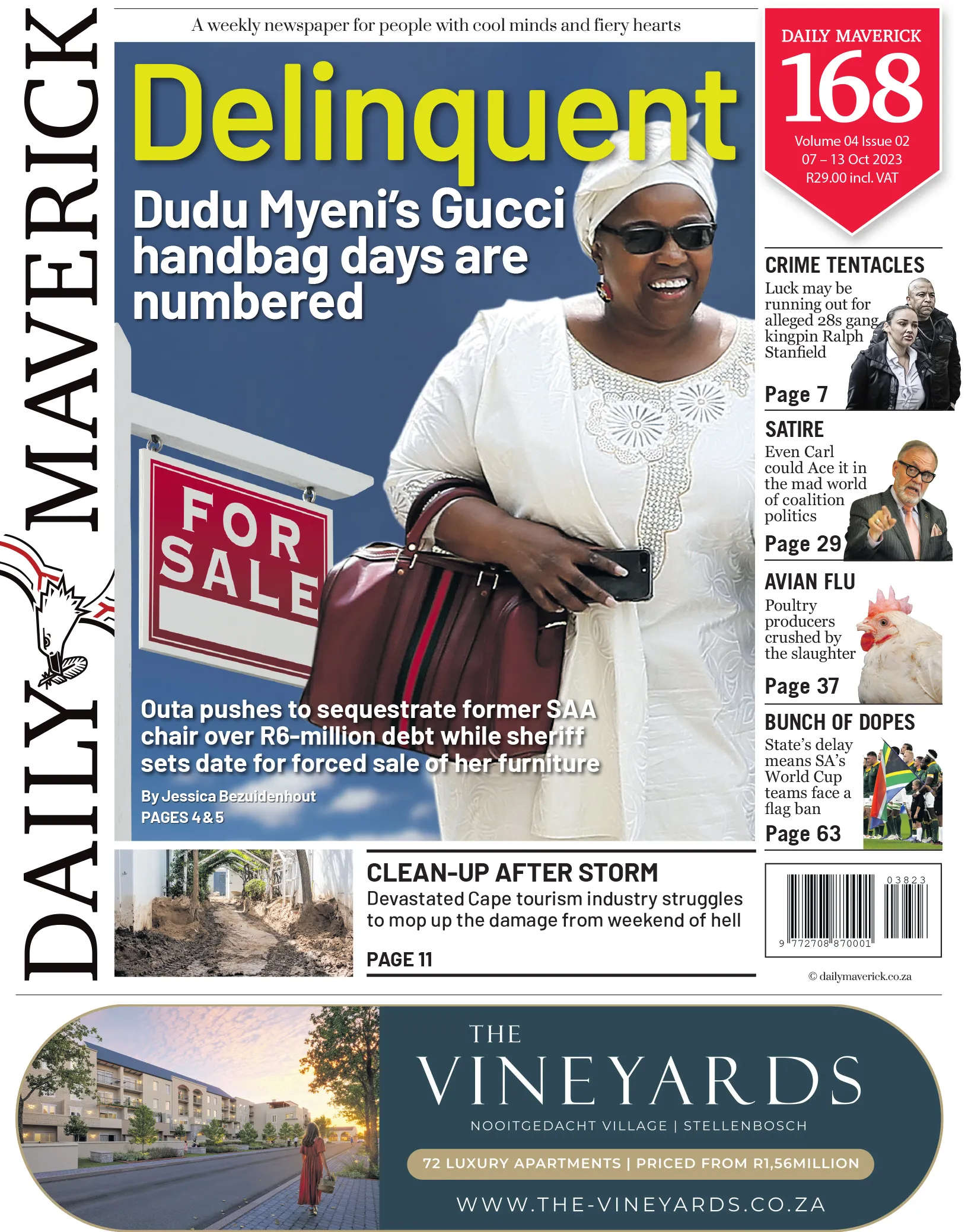CHICKEN AND EGG CRISIS
Poultry producers bear crippling cost of avian flu as government accused of dragging its feet

The South African Poultry Association says the government has yet to compensate poultry producers for any losses – and these amount to hundreds of millions.
The Department of Agriculture, Land Reform and Rural Development’s estimation of 2.5 million chickens culled to contain two strains of the highly pathogenic avian influenza (HPAI) outbreak in South Africa is just a third of the actual number of birds the poultry industry has been forced to cull to date – and belies the true cost so far to producers: about R550-million.
And that’s just for the five million layer poultry that the industry has culled, not the millions of broilers and breeding stock.
Once mature, each layer hen is worth about R110.
On 3 October, the Department of Trade, Industry and Competition (DTIC) called on the International Trade Administration Commission (Itac) to consider a temporary rebate on anti-dumping duties on imports of chicken meat and edible offal of fresh, chilled or frozen chicken from Brazil, Denmark, Ireland, Poland and Spain to offset shortages of local chicken.
The call for a temporary rebate comes just two months to the day after Itac reinstated the duties to protect local chicken producers from dumping.
Thoko Didiza, the agriculture minister, confirmed on 2 October that South Africa was dealing with several HPAI outbreaks.
She said it had resulted in the culling of more than 2.6 million chickens by 21 September.
Vaccination of chickens
Didiza met retailers this week to discuss the government’s efforts to contain the outbreak. The department wants to expedite import permits for egg products and is looking at rolling out vaccinations. South Africa does not yet vaccinate chickens.
Dr Abongile Balarane, CEO of the egg division of the South African Poultry Association (Sapa), said introducing vaccination was a lengthy process that could take years, but he was hopeful that it would be expedited through the agriculture department’s “constructive” engagements with the industry.
He said the industry was also in talks with the government on possibly importing eggs, and to fast-track the permits for importing products such as liquid and powdered egg products, which can be used for industrial purposes.
What they were not speaking about was compensation for producers. On 28 September, RCL Foods, which owns Rainbow Chicken, reported that it had to cull 410,000 chickens because of the outbreak.
To date, the bird flu outbreak has cost Astral about R220-million, whereas Quantum reported on 22 September that the HPAI outbreak affected about 1.5 million of its layer and breeding stock, costing about R106-million.
Asked whether producers are likely to see any relief from the state, the agriculture department’s spokesperson, Reggie Ngcobo, issued a curt reply, saying the Animal Act is clear on the process to be followed on such an issue. “[It’s] the act that requires producers to cull in a situation such as this.”
However, Izaak Breitenbach, the general manager of Sapa’s Broiler Association, told Daily Maverick: “The government is supposed to compensate producers for all birds culled. Unfortunately it has yet to pay a single producer or farmer. This has had a material impact on the producer, who now has to carry the full burden of the birds lost and production lost.”
Balarane said the association was part of both the egg and the agricultural policy master plans, under the department and the DTIC.
“There are blended funding mechanisms that are already approved by the ministers, through the different banks, the IDC [Industrial Development Corporation] and the Land Bank…
“These are the things that we may introduce at some stage to the discussions with the government – about how to look into those funding mechanisms to try to assist farmers.”
Retailers across the country, too, are feeling the pinch. Woolworths, which had previously told Daily Maverick that it was not yet affected, said this week that it had been monitoring the avian flu situation carefully both locally and internationally and was following strict biosecurity protocols to protect its hens as best it can. A spokesperson said that, as is the case across the market, the company was experiencing significant challenges with egg supply. At this stage, poultry meat supply hasn’t been affected.
Six-egg limit
“We have implemented a limit on whole-egg purchases in all Woolies stores and online to six eggs per customer so that we can share the available eggs with as many customers as possible, while we work with our farmers to ensure regular supply returns soonest.”
The main focus is to ensure that suppliers receive the eggs they need to stay in production, which is part of the reason for the temporary buying limits.
Read more in Daily Maverick: SA retailers warn of looming egg shortages linked to nationwide avian flu outbreak
Pick n Pay called on customers not to stockpile. “We are asking customers to please shop responsibly. We will limit purchases to one or two egg packs per customer, depending on the region…”
Shoprite said: “Avian flu is affecting the supply of chicken and eggs. We are working closely with suppliers, securing as much stock as possible and utilising our supply chain to transport it to regions experiencing shortages.”
Spar Group’s divisional commodities manager, Jacques Roets, said it was closely monitoring the situation. “This outbreak has significantly impacted some of our egg producers, resulting in limited stock availability, and creating a demand and supply challenge.
“While we are unsure as to when egg supply will normalise, we are taking our lead [from Sapa] and working closely with our approved private label suppliers and partners to secure stock that aligns with our normal average customer demand…”
And Massmart said: “In the context of the current avian flu outbreak and similarly to the industry as a whole, egg supply is erratic and is selling through very quickly.”
A shortage of poultry will have severe food security implications on availability and prices, as chicken is a basic, staple protein.
In May, leading importer Hume International sounded the alarm after two cases of HPAI were detected in wild birds in Brazil – South Africa’s top source of imported chicken. It called on the government to implement proactive measures urgently to avoid a looming crisis.
On 3 October, the importer’s managing director, Fred Hume, commended the DTIC for taking swift action to avert a humanitarian crisis, but said more had to be done to allow importers to respond to the supply shortages.
“[The] South African poultry master plan needs to be reworked so that it demonstrates how we deal with import duties in the case of widespread outbreaks of animal disease such as bird flu,” Hume said. DM
This story first appeared in our weekly Daily Maverick 168 newspaper, which is available countrywide for R29.



















Comments - Please login in order to comment.